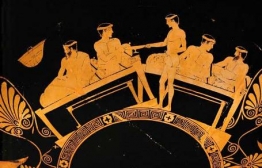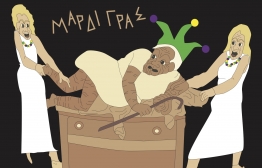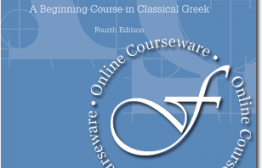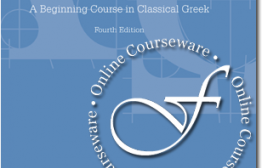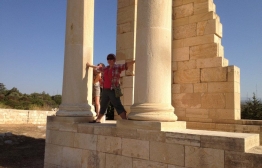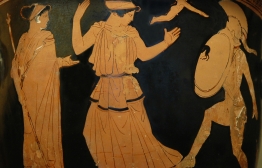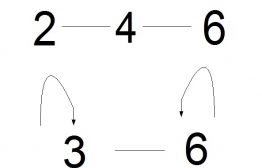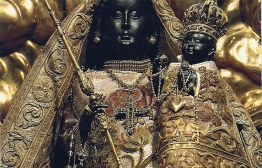As a Loyola student, you have the opportunity to work alongside our talented professors to partner in collaborative research. Learn more about some recent research and projects currently underway.
A Within Host Model of Dengue Virus Infection
Dr. Jeremy Thibodeaux and senior mathematics student Michael Hennessey have derived a system of differential equations that model certain blood cell and particle populations in the body when it is infected with Dengue virus. The model aims to capture the relevant physiological processes to provide researchers a tool to develop more effective antiviral drugs and treatments in the fight against Dengue Fever.
Just Desserts
Dr. Karen Rosenbecker has an article “Just Desserts: Reversals of Fortune, Feces, Flatus, and Food in Aristophanes’ Wealth” that will appear in Harvard Studies in Classical Philology, vol. 108, spring 2015.
Currency Exchange
Dr. Karen Rosenbecker and Professor Artemis Preeshl have had their article, “Currency Exchange: Staging Aristophanes’ Wealth in New Orleans” published in the journal, Didaskalia.
Greeking Out
Dr. Karen Rosenbecker and Mr. Brian Sullivan have had their article “‘Greeking Out’: Creating Digital Tutorials and Support Materials for Beginners” published in the journal Teaching Classical Languages (5.2, spring, 2014).
From Alpha to Omega: A Beginning Course in Classical Greek
Karen Rosenbecker, Assistant Professor of Classical Studies and Brian Sullivan, On-Line Learning Librarian, created Screen Cap Video Tutorials for “From Alpha to Omega: A Beginning Course in Classical Greek”, a series of animated tutorial modules to accompany the text. The video tutorials are keyed to the fourth edition of From Alpha to Omega and are being promoted by Focus/Pullins Publishers as part of their new expanded support materials for the text. View a sample tutorial
Hellenistic pottery on Cyprus
Samantha Urso (2014) wrote her departmental honors thesis, "An Examination and Analysis of the Hellenistic Ceramics from Prastio Mesorotsos", calling upon her experience in field archaeology from the excavation she participated in on the island of Cyprus during the summers of 2012 and 2013.
Helen of Troy
Jason Clay (2014) presented a paper at the Annual Meeting of the Classical Association of the Middle-West and South. The paper, "The Blame Game: Helen of Troy as Rhetor," was a section of Jason's senior thesis, which was an extended study of the interplay of blame and shame in Homer's Iliad. Jason presented his work April 2014 in Waco, Texas.
Zero Divisor Graphs
My research involves using graph theory to study rings. A ring is a set within which we can add, subtract, and multiply. Strangely enough, sometimes in a ring the product of two non-zero elements is zero! For example, this can happen when we multiply matrices.
We can represent this situation using a graph. A graph is just a bunch of point with lines connecting them. Graphs can be used to describe many situations, such as the patterns of city streets, computer networks, and the structure of molecules, among other things. In my research, we write down all the zero divisors in a ring and connect two of them if their product is zero. We can then study the graph to find patterns which can give information about the ring. Here are two fairly simple graphs.
Over the last two years two of my students have received $4,000 grants to study these graphs. The study of these graphs provides a good introduction to undergraduate research.
Spanish Theatre of Social Protest
Dr. Eileen J. Doll does research on contemporary Spanish play texts, in particular those that deal with immigration issues in Spain, and other current social problems.
Spanish Theatre of Social Protest is Dr. Eileen Doll’s (Languages and Cultures Chair) latest publication, which brings to life her research on contemporary Spanish play texts, in particular those that deal with immigration issues in Spain, and other current social problems. Dr. Doll studied over 30 plays from 1989 to 2013, analyzing how immigrant characters were portrayed for the Spanish audience. Many of the works raised important social questions regarding a rather new aspect of Spanish society, which until the 1980s had little immigration. Looking at the characters from four main perspectives—language(s) used on stage, scenic space, dramatic techniques such as lighting or sound, and the positioning of the audience—the analysis concludes that integration of the new immigrants is slow, but dramatists are working to raise awareness of the problems.
Displaced Christianities - Mapping Postcolonial Theology
Those in power have the power to shape knowledge in a way which reinforces their power: This is the core insight of post-colonial studies, a school of thought which emerged in the 1960s with the end of colonialism in Africa and Asia, and employed by Dr. Judith Gruber in her research, “Displaced Christianities - Mapping Postcolonial Theology.” Post-colonialism offers a re-reading of colonial history from the perspective of the colonized; it unburies alternative stories to show that the dominant version of history has always represented and served the interests of the establishment.
A critique of this intimate connection between truth and power also poses a serious challenge to traditional understandings of Christianity: A post-colonial re-reading of Church history excavates a host of forgotten and silenced Christianities and shows that Christian tradition has been forged through the exclusion of less powerful voices. How does theology cope with this emerging plurality of Christianities, and how does an exposure of power struggles in the tradition of the Church unsettle traditional understandings of Christianity? The research project draws on post-colonial thought in search of an answer to these questions, and probes for new and unsettling ways of thinking and talking about God.


